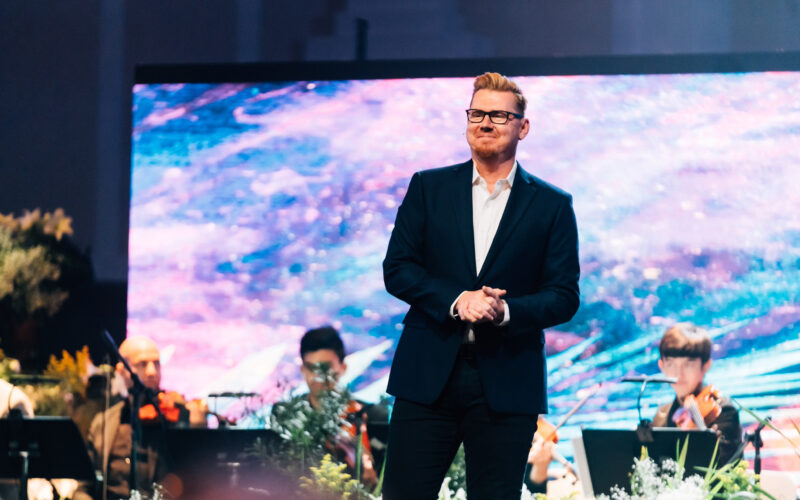Traditionally, in this first week of the advent season before Christmas, we call to mind the hope we have in Christ, hope in what many have called the third advent. Christ has come incarnate, born of the virgin Mary, the first advent. He has come into each Christian’s life, the second, and he will come again to judge the quick and the dead, the third advent. Along with the apostle John and all of creation’s groaning I say, “Amen. Come, Lord Jesus.”
In Acts 23:6, Paul testifies before the Sanhedrin saying he is on trial, in prison, because of his hope in the resurrection of the dead. Jeremiah, too, prophesies hope for the restoration of his people from a prison cell. Isaiah and John from exile. How many others spring to mind? Eliot, King, Bonhoeffer, Luther, the myriads of martyrs before the throne cry out—hope is a dangerous thing, it seems.
Christian hope, specifically. You can have vague “hope for the holidays” without getting into any trouble, hope for a raise, hope for a new romance. But Christian hope, hoping for Christ to return, to “rend the heavens and come down,” is a dangerous thing—yet it is the only kind of hope which is worthwhile to hold. This hope is not only dangerous in some far off place or time, but here and now in our place and time, because to have hope, Christian hope, you have first to admit what we have now isn’t what we’re hoping for. Hope begins in confession. This world is broken—we broke it, not someone else. I did, I broke our world, our society with my sin. Nothing here can satisfy now. There is no balm in this world that can heal my soul. This country is not the kingdom of God. We do not live in peace, not yet, and the nations are not ruled in justice. What I’m longing for, hoping for, this world isn’t it.
Lewis calls Christian hope a kind of mourning, and the more I live, I understand. The more loss I experience, I understand. There is a chasm between our lives as we live them and our lives as God intends them to be, and before you can really have hope in Christ for anything else, you have to look into the chasm. To preach hope you always have to begin, first, with tragedy, because, as Beuchner writes, the gospel is always tragedy before it is good news. The tragedy of this world is, this is not our home.
The good news is, restoration is coming, just as surely and just as defiantly as it came the first time. Jesus Christ, the true lord and ruler, is coming who will bring justice and peace, together. He will judge the nations in righteousness, not out of self-interest or bias. He’ll turn death back, and those we’ve lost will be restored to us in that day. He will reconcile us with every brother and sister we’ve lost to bitterness, anger, or misunderstanding—every wife, every daughter, every son. All of the sad things will come untrue in that day.
Today is not that day, but today we hope. This hope is dangerous, like mourning, but in a world filled with fake plastic semblance, this is something real. It’s founded on a person who has shown himself able to do all of what we most long for, and many things we never even dared to dream. The God who took time to dwell with us, to know us, still loves and died for us.
Advent reminds us, holding onto Christian hope means letting go of the things of this world. Let go of bitterness and reach out. Let go of power and offer service. Let go of petty anger and offer encouragement. Let go of indifference and offer love, not to some far-off person you’re able to love in theory, but to the people closest to you. Dare to hope this year that already and not yet, Christ has come.



